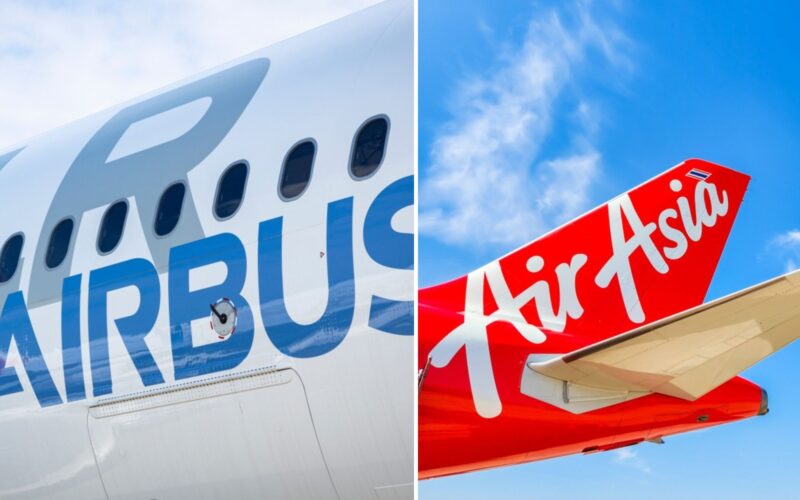AirAsia has announced a new partnership with European aircraft manufacturer Airbus, in a bid to boost aviation sustainability efforts in the Southeast Asian region.
The two companies’ sustainability divisions have entered a Memorandum of Understanding (MoU) to explore decentralized production of Sustainable Aviation Fuel (SAF) using alternative feedstock and technologies in Southeast Asia.
Under the MoU, the two companies will jointly investigate advanced measures to improve air traffic management (ATM) to reduce CO2 emissions.
According to AirAsia, this will leverage its fuel efficiency program and Airbus’ pioneering role as a global leader in aeronautics, space and related services. The organizations will also identify applicable solutions developed as part of the Single European Sky ATM Research (SESAR) Project and assess their suitability for adaptation to the ASEAN region.
“Airbus is contributing to the decarbonisation of aviation around the world. That means working with our customers in every region, looking at all solutions available today and collaborating on research for future technologies,” Airbus Chief Sustainability Officer Julie Kitcher said in a statement.
“AirAsia is a key partner in the ASEAN region and we are excited to work with the airline to explore operational efficiency levers, including air traffic management and scaling up the production and distribution of SAF,” Kitcher added.
At the 2024 Singapore Airshow, Airbus signed a Memorandum of Understanding (MOU) with the Singapore Economic Development Board (EDB) to facilitate the establishment of a Sustainable Aviation Hub. However, the Asia-Pacific region is still lagging behind Europe and North America in terms of sustainability efforts and government mandates regarding the use of SAF.
In an exclusive interview with AeroTime, Airbus President for Asia Pacific Anand Stanley noted the Asia-Pacific region is composed of countries with varying resources and capabilities for SAF production. As examples, he cited the Philippines’ huge production of cooking oil that can be recycled and Australia’s capacity to deliver feedstock for biodiesel production.
“Each country has a unique wealth of resources that can be translated to SAF,” Stanley said.

